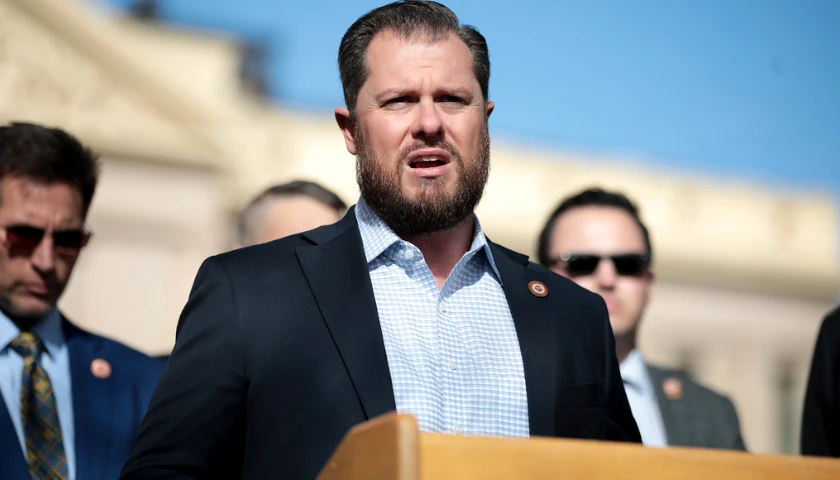by Casey Harper
U.S. Treasury Secretary Janet Yellen will testify before the Senate Finance Committee Tuesday, just days after she admitted she was wrong about inflation earlier in President Joe Biden’s term.
The hearing, which is on “the president’s fiscal year 2023 budget” will only feature testimony from Yellen, according to the committee’s website.
Biden’s budget likely will be under extra scrutiny as gas prices continue to hit record highs and inflation rises at the fastest level in decades.
Last year, as prices began to rise on most consumer goods, Yellen said she didn’t think inflation was going to be a problem. Last week, she admitted she was wrong.
Critics said Biden’s budget, which would only further the federal debt spending and money printing that caused inflation, would only make things worse.
The Congressional Budget Office recently released new projections about the U.S. federal debt that raised the alarm for many experts with its reports that federal debt will continue to outpace GDP growth.
“CBO projects that the federal budget deficit will shrink to $1.0 trillion in 2022 (it was $2.8 trillion last year) and that the annual shortfall would average $1.6 trillion from 2023 to 2032,” CBO said. “The deficit continues to decrease as a percentage of gross domestic product (GDP) next year as spending related to the coronavirus pandemic wanes, but then deficits increase, reaching 6.1 percent of GDP in 2032. The deficit has been greater than that only six times since 1946.”
According to the Committee for a Responsible Federal Budget, Biden’s 2023 spending plan would slightly reduce the deficit, down to about $14.4 trillion over the next decade, a reduction from the COVID-era spending that spiked deficits.
“With near-record debt levels, surging inflation, and low unemployment, now is the right time to pivot towards deficit reduction – we are encouraged the President is taking this seriously,” said Maya MacGuineas, president of CRFB. “While the budget still borrows too much, and the debt would grow too high, after many years of both necessary and reckless borrowing, a greater emphasis on deficit reduction would be a welcome change.”
MacGuineas said the budget, though, is still spending far too much.
“Unfortunately, this budget leaves debt on an unsustainable path, and lacks important details on how it would structure the core of its agenda or address provisions scheduled to expire,” she said. “Even taking the budget at its word, debt would rise to a new record by the end of the decade. The budget does not go far enough toward putting the nation’s fiscal house back in order, nor does it tackle the tougher tradeoffs necessary to responsibly prevent Social Security, Medicare, and Highway Trust Fund insolvency.”
– – –
Casey Harper is a Senior Reporter for the Washington, D.C. Bureau of The Center Square. He previously worked for The Daily Caller, The Hill, and Sinclair Broadcast Group.
Photo “Janet Yellen” by Mark Warner CC2.0.








